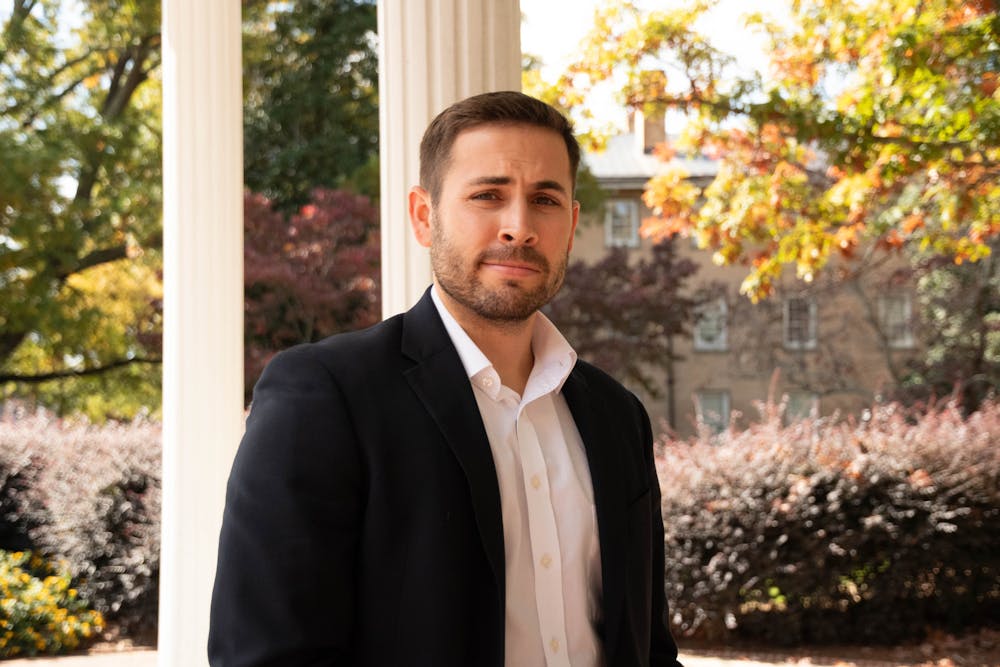Much of the need for routine care falls on Campus Health, DiNardo said. She added that while the University provides good health care through Campus Health, there is a “huge gap” in what they offer, especially regarding specialist care.
Campus Health provides a referral service to connect people with various specialist care physicians. Despite helping many individuals find in-network doctors, some graduate students covered by GSHIP, like DiNardo, are still barred from accessing care due to difficulty meeting a deductible and keeping up with coinsurance payments.
The plan fails to cover certain healthcare services altogether.
Lauren Hawkinson, president of the Graduate and Professional Student Government, said multiple students, including herself, have expressed concerns about the lack of dental insurance within the plan.
Instead of a dental plan, the University provides resources to assist graduate workers in obtaining dental care through alternative means. UNC affiliate Campus-Smiles provides “everyone at UNC with high-quality, convenient and affordable dental care,” according to the Campus Health website.
However, in the face of recent concerns about the inadequacy of graduate workers’ stipends, the solutions, such as low-cost dental insurance acquired independently of GSHIP, often contain gaps in coverage.
Hawkinson said that while Counseling and Psychological Services is available to students, many end up connecting with outside mental health providers. She said that when seeking a provider, the financial strain of meeting the deductible and paying for the portion of appointments not covered by coinsurance inhibit graduate workers’ ability to access mental health services.
Jake Diana, the director of health and wellness for the Graduate and Professional Student Government who also struggles with a chronic illness, said that in addition to gaps in the plan, graduate school is many individuals’ first time independently shouldering the responsibility of their health insurance.
“Having a chronic condition and understanding whether or not your health insurance covers the unique treatments that you need is very anxiety-inducing, and it can be cost-intensive,” Diana said. “It forces young individuals to make hard health decisions, like, ‘Do I have the money to get the care that I need?’”
In response to recent concerns of over a nearly 104 percent increase in the price of student health insurance rates within the UNC System, the Board of Governors hired an independent consulting firm, Gallagher Student Health and Special Risk, to conduct a feasibility study to reassess the potential for changes that might be made to health insurance for all schools in the UNC system going forward.
A summary of the resulting Gallagher report was released last week. A BOG meeting took place Tuesday with representatives from the firm to discuss the findings. The study indicated the benefits of switching to a “self-funded” student health benefits plan, meaning employers are responsible for paying back insurance claims, as opposed to paying a premium to a third-party insurance company to bear responsibility for the claims.
The study found that a self-funded plan could offer potential savings of approximately $1–6 million per year and lower rate inflation since the University, as opposed to a third-party insurer, would take on cost risks, resulting in more control over plan costs as well as plans customized to the needs of each university’s populations.
To get the day's news and headlines in your inbox each morning, sign up for our email newsletters.
Currently, all universities in the UNC system have uniform rates for Student Health Insurance Programs. The report recommended tiered premiums instead to ensure that student expenses reflect the average costs of each university, “creating a fair and equitable system where students contribute to their SHIP coverage in a manner that accurately reflects their university's unique costs.”
While the report displayed the benefits of a switch to a self-funded insurance model, the UNC system is in charge of deciding whether such a switch will be made. Furthermore, the contents of the report were pertinent to graduate insurance but ultimately evaluated the SHIP, which is all student health insurance. The Board is set to make a decision in early 2024, Vice Chair Wendy Murphy said at the meeting.
@dailytarheel | university@dailytarheel.com



